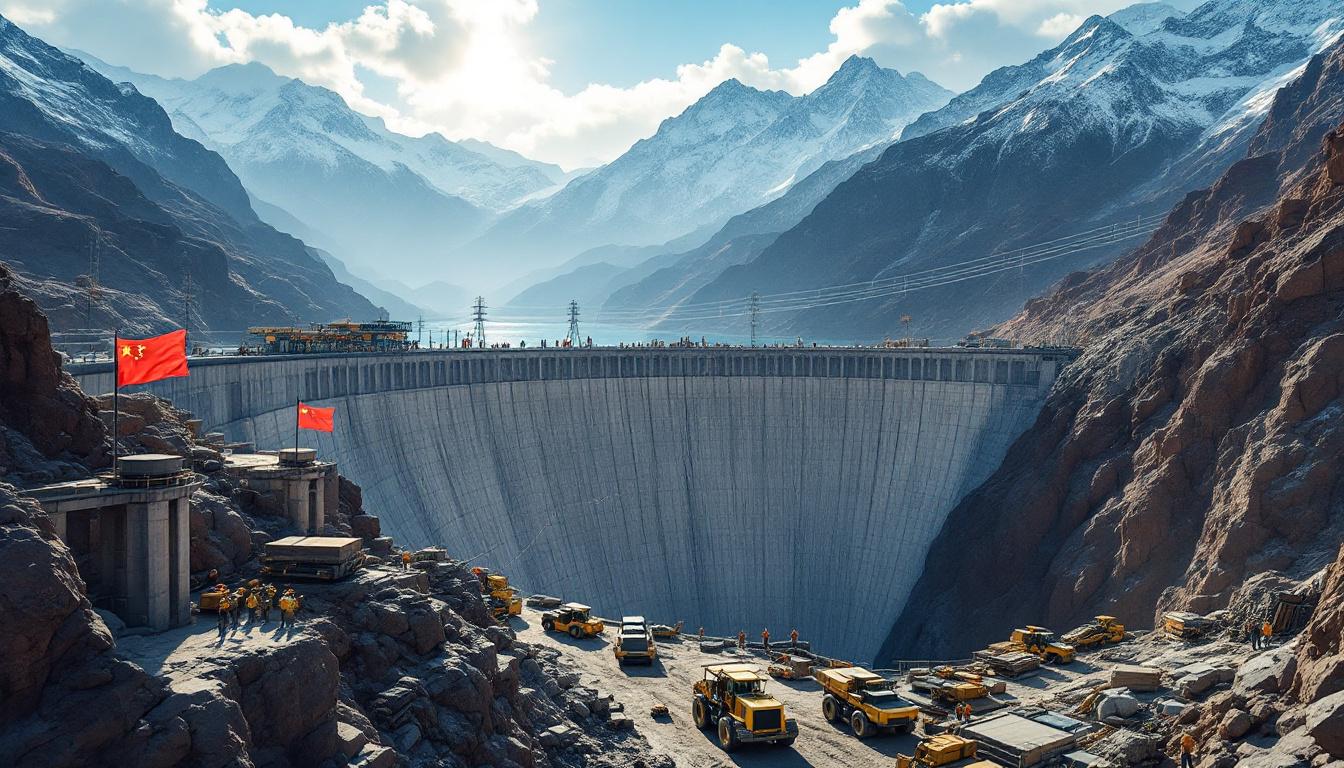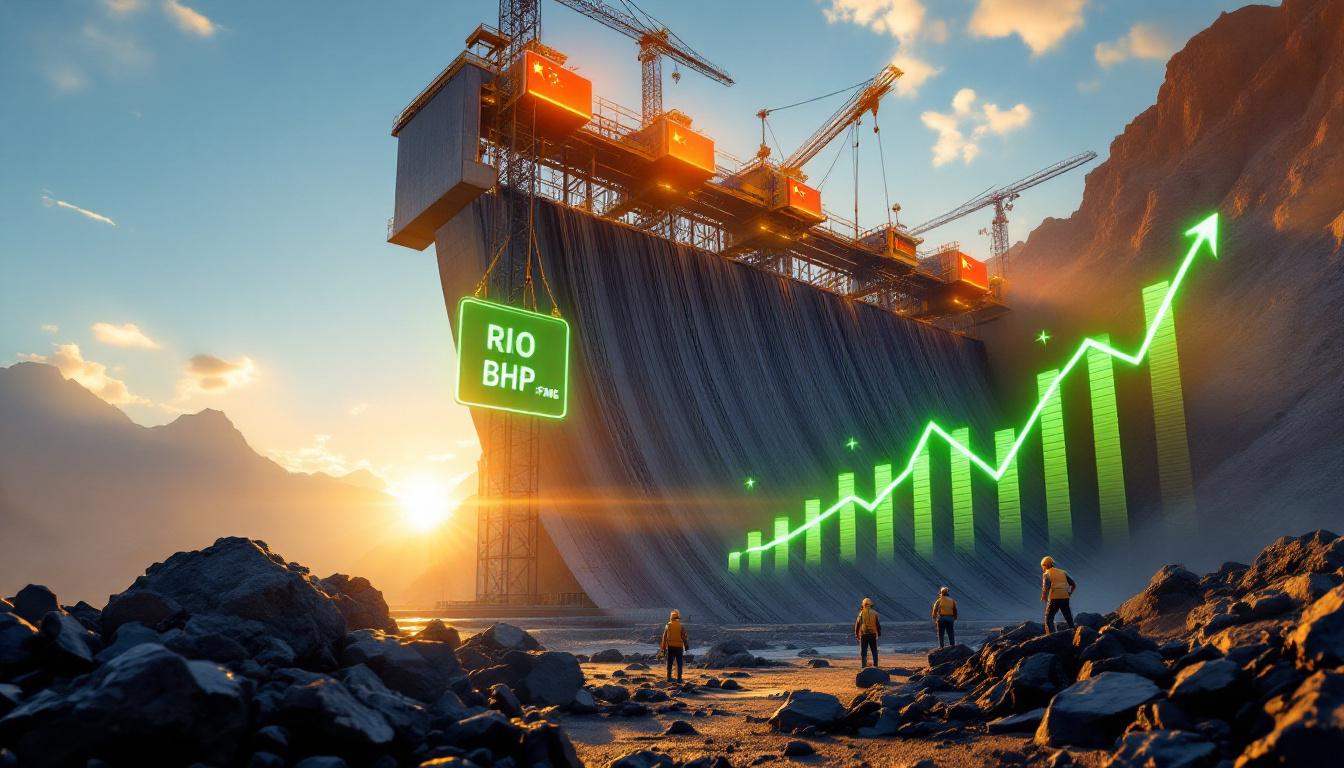Environmental Violations at Indonesia's Nickel Industrial Parks: Consequences and Implications
Indonesia's Ministry of Environment has uncovered serious environmental violations at the Indonesia Morowali Industrial Park (IMIP), triggering a cascade of regulatory responses with potentially far-reaching implications for the global nickel market. As Indonesia now accounts for over 50% of global nickel production, these environmental breaches could have significant consequences not only for local ecosystems but also for worldwide nickel supply chains and prices.
What Environmental Breaches Have Been Found at Indonesia's Nickel Parks?
The environmental violations at Indonesia's nickel industrial parks present a concerning pattern of non-compliance with established regulations. The Ministry of Environment's investigation has revealed systematic issues that pose risks to both environmental sustainability and human health in the surrounding regions.
Specific Environmental Violations Identified
The most significant breaches discovered at the Indonesia Morowali Industrial Park include:
- Improper wastewater management systems allowing heavy metals and processing chemicals to contaminate local water sources
- Significant air pollution issues from smelter operations, exceeding permitted emission levels by substantial margins
- Use of unlicensed tailing disposal areas creating potential for long-term soil and groundwater contamination
- Failure to comply with environmental impact assessment requirements mandated by Indonesian law
"The environmental audit revealed systemic non-compliance across multiple facilities within IMIP, with particular concerns regarding the management of acid-containing wastewater and airborne particulate matter," according to inspection reports.
The environmental violations are particularly troubling given the scale of operations at IMIP, which spans approximately 2,000 hectares on Sulawesi island and employs over 100,000 staff and contractors. The industrial park's massive footprint amplifies the potential environmental impact of these regulatory breaches.
How Will Indonesia Sanction Companies for Environmental Breaches?
The Indonesian government has signaled a new approach to environmental enforcement in its nickel sector, moving beyond warnings to implement concrete penalties for non-compliant operations within IMIP and potentially other industrial parks.
Types of Sanctions Being Implemented
Authorities have outlined a multi-faceted approach to enforcement:
- Government directives requiring immediate compliance with environmental standards
- Financial penalties for companies proven to have violated environmental laws, with fines scaled to the severity and duration of violations
- Mandatory environmental audits across the entire industrial area to identify all instances of non-compliance
- Potential operational restrictions for severe violators, including temporary production suspensions
Deputy for Environmental Law Enforcement Rizal Irawan emphasized the government's commitment, stating: "Sanctions against companies violating environmental laws will be in the form of government directives and fines on companies proven to have violated laws. An audit of the entire industrial area will also be ordered."
The sanctioning process will likely involve a phased approach, beginning with compliance orders followed by escalating penalties for companies that fail to implement required changes within specified timeframes.
Why Is the Indonesia Morowali Industrial Park Significant?
IMIP represents the centerpiece of Indonesia's transformation into the world's dominant nickel producer, making its environmental practices a matter of both national and global significance.
IMIP's Scale and Impact
The park's impressive statistics highlight its importance to global nickel markets:
- Production capacity: Accounts for a substantial portion of Indonesia's nickel output, which now exceeds 50% of global production
- Massive investment: Built with more than $30 billion in capital investment
- Extensive operations: Spans approximately 2,000 hectares on Sulawesi island
- Significant employment: Provides livelihoods for over 100,000 staff and contractors
- Strategic ownership: Controlled by Chinese metals giant Tsingshan Holding Group, the world's largest stainless steel producer
IMIP has been the cornerstone of Indonesia's strategy to move up the value chain in nickel processing. Rather than exporting raw ore, the country now processes nickel domestically into higher-value products including nickel pig iron, nickel matte, and increasingly, battery-grade nickel sulfate for electric vehicle batteries.
The industrial park houses not only smelters but an integrated production ecosystem including power plants, port facilities, and worker accommodations, making it effectively an industrial city dedicated to nickel processing.
What Are the Broader Implications of Environmental Enforcement in Indonesia's Nickel Sector?
The government's enforcement actions at IMIP signal a potential inflection point in Indonesia's approach to managing the environmental impacts of its rapidly expanding nickel industry.
Historical Context and New Direction
Indonesia's nickel sector has undergone remarkable transformation:
- The industry has expanded at an extraordinary pace over the past decade, with production capacity growing several-fold
- Environmental oversight has historically lagged behind the rapid industrial development
- Chinese investment has driven much of the expansion, with Chinese companies owning many of the smelting operations
- The industry has faced criticism for both safety issues and environmental pollution, particularly related to water contamination and air quality
The new enforcement measures suggest a recalibration of Indonesia's industrial development strategy, attempting to balance continued growth with greater environmental responsibility.
Potential Industry-Wide Impact
The sanctions could have widespread effects across Indonesia's nickel sector:
- Regulatory ripple effect: The enforcement actions at IMIP likely signal increased scrutiny for other industrial parks such as the Weda Bay Industrial Park
- Operational adjustments: Companies may need to retrofit existing facilities with improved environmental controls
- Cost implications: Enhanced environmental compliance will likely increase production costs across the industry
- Reputational considerations: Indonesia's response to these violations will influence its standing as a responsible resource producer
"This marks a significant shift in Indonesia's approach to its nickel industry. The government appears to be recognizing that environmental sustainability must accompany industrial growth for the sector to maintain its social license to operate," noted industry observers.
The enforcement actions may also influence Indonesia's relationships with key trading partners and downstream customers who increasingly demand responsibly sourced materials.
How Has Indonesia's Nickel Industry Developed and What Challenges Does It Face?
Indonesia's strategic decision to ban nickel ore exports and develop domestic processing capabilities has radically transformed both the country's economy and global nickel markets.
Indonesia's Nickel Industry Evolution
The country's nickel strategy has evolved through several key phases:
- Resource leverage phase (2014-2020): Implemented export bans on raw nickel ore to encourage domestic processing
- Processing capacity expansion (2017-present): Attracted massive investment in smelting and refining capacity, primarily from Chinese companies
- Market dominance achievement (2020-present): Rapidly expanded to become the dominant global producer, controlling over half the world's nickel output
- Value chain advancement (ongoing): Focused on developing downstream industries including electric vehicle battery materials
This evolution represents one of the most successful resource nationalism strategies in recent history, with Indonesia effectively using its control of nickel reserves to force the development of domestic processing capabilities.
Ongoing Challenges
Despite its success, Indonesia's nickel sector faces significant challenges:
- Environmental-economic balance: Reconciling economic development objectives with environmental protection
- Social impacts: Managing the effects of rapid industrialization on local communities, including land use conflicts
- Safety concerns: Addressing workplace safety issues that have resulted in multiple fatalities at nickel facilities
- Trade relationships: Navigating international trade disputes, including WTO challenges to Indonesia's export restrictions
- Power supply: Securing sufficient electricity for energy-intensive processing operations
- Technological transitions: Adapting to changing requirements for battery-grade nickel production
The government's environmental enforcement actions represent an attempt to address one of these key challenges while maintaining the sector's growth trajectory. Furthermore, the industry evolution insights indicate that balancing growth with sustainability will be crucial for long-term success.
What Environmental Concerns Surround Nickel Processing?
Nickel processing presents multiple environmental challenges that have raised concerns both locally and internationally about the sustainability of Indonesia's production boom.
Key Environmental Issues in Nickel Production
The nickel industry's environmental footprint includes:
| Environmental Impact | Description | Potential Consequences |
|---|---|---|
| Water pollution | Contamination from processing chemicals and heavy metals | Drinking water contamination, ecosystem damage, fishery impacts |
| Air quality degradation | Sulfur dioxide, particulate matter, and other emissions from smelters | Respiratory health issues, acid rain, vegetation damage |
| Land degradation | Surface disruption from mining and industrial operations | Habitat loss, soil erosion, landscape alteration |
| Energy consumption | High electricity demand for processing | Carbon emissions from coal power, resource depletion |
| Waste management | Tailings and slag disposal challenges | Groundwater contamination, structural failures, land use conflicts |
The high-pressure acid leaching (HPAL) process used for producing battery-grade nickel presents particular environmental challenges due to its intensive use of chemicals and generation of acidic waste. Implementing effective waste management solutions is becoming increasingly critical for the industry's sustainability.
Local Impact Concerns
Environmental issues at Indonesia's nickel facilities have direct consequences for surrounding communities:
- Water resource contamination: Local reports indicate discoloration and chemical changes in water bodies near processing facilities
- Agricultural impacts: Farmers have reported reduced crop yields in areas adjacent to industrial parks
- Health implications: Communities near smelters report increased respiratory complaints and skin conditions
- Traditional livelihood disruption: Fishing communities have been affected by changes in coastal water quality
- Long-term environmental degradation: Concerns about cumulative effects that may persist for generations
"The balance between economic development and environmental protection remains precarious in Indonesia's nickel producing regions, with local communities often bearing the brunt of environmental externalities," environmental researchers have noted.
Addressing these environmental concerns is increasingly crucial as Indonesia seeks to position its nickel industry as a responsible supplier to global markets, particularly for electric vehicle batteries where environmental credentials are increasingly scrutinized.
How Might These Sanctions Affect Indonesia's Position in Global Nickel Markets?
As the world's largest nickel producer, Indonesia's environmental enforcement actions could have ripple effects throughout global supply chains and market dynamics.
Market Implications
The sanctions could influence market conditions in several ways:
- Production adjustments: If significant operational changes are required at IMIP, temporary production disruptions could affect global supply
- Cost structure changes: Implementing improved environmental controls will likely increase production costs across Indonesia's nickel industry
- Price sensitivity: Any supply constraints could exacerbate already tight nickel markets, potentially supporting higher prices
- Quality segmentation: Different market segments (stainless steel vs. battery materials) may be affected differently depending on the distribution of sanctions
- Competitive positioning: Indonesia's stance on environmental standards will influence its competitive position relative to other producers like the Philippines and New Caledonia
The nickel market has historically been sensitive to Indonesian policy decisions, with previous export bans causing significant price movements. Environmental enforcement represents a new variable that market participants will need to incorporate into their outlook.
Strategic Considerations
Beyond immediate market effects, the sanctions raise important strategic questions:
- Sustainability vs. dominance: Indonesia must balance maintaining its production leadership with improving environmental standards
- International scrutiny: Growing attention to supply chain sustainability from end-users like EV manufacturers places pressure on producers to demonstrate environmental responsibility
- Investment attractiveness: How environmental enforcement is implemented will influence future investment decisions in Indonesia's nickel sector
- Technological adoption: The sanctions may accelerate adoption of cleaner production technologies across the industry
- Policy consistency: Market participants will closely watch whether enforcement actions represent a temporary response or a sustained shift in Indonesia's approach
Indonesia's position as the pivotal player in global nickel markets means its environmental policies will have outsized influence on the industry's overall sustainability trajectory. In fact, according to a recent Reuters report, these environmental actions could reshape the global nickel supply chain for years to come.
What Steps Can Nickel Producers Take to Improve Environmental Compliance?
Companies operating in Indonesia's nickel sector have multiple options to address environmental concerns and align with regulatory requirements.
Recommended Environmental Improvements
Technical solutions available to nickel producers include:
- Wastewater management upgrades: Implementation of advanced filtration and treatment systems to remove heavy metals and process chemicals
- Air pollution control technologies: Installation of scrubbers, electrostatic precipitators, and other emissions reduction equipment
- Proper tailings management systems: Development of engineered tailings storage facilities with appropriate liners and monitoring
- Environmental monitoring infrastructure: Deployment of continuous monitoring systems for air, water, and soil quality
- Cleaner production technologies: Adoption of more efficient processing methods that reduce waste generation
- Energy efficiency improvements: Implementation of heat recovery systems and process optimizations to reduce energy consumption
- Water recycling systems: Installation of closed-loop water systems to minimize freshwater use and wastewater discharge
Many of these improvements require significant capital investment but can reduce long-term operational risks and compliance costs. Additionally, companies are increasingly exploring decarbonisation benefits which can provide both environmental and economic advantages.
Industry Best Practices
Beyond technical solutions, governance and management approaches are equally important:
- Regular environmental audits and transparent reporting to identify and address issues proactively
- Stakeholder engagement with local communities to understand concerns and develop collaborative solutions
- Adoption of international environmental standards such as ISO 14001 for environmental management systems
- Investment in research for more sustainable processing methods
- Employee training programs to build environmental awareness and compliance culture
- Supply chain due diligence to ensure responsible sourcing practices
- Public disclosure of environmental performance metrics and improvement targets
Companies that adopt these practices can not only achieve regulatory compliance but potentially gain competitive advantages as responsible suppliers in increasingly environmentally conscious markets. Furthermore, implementing comprehensive ESG mine planning strategies from the outset can help prevent environmental issues before they occur.
FAQs About Indonesia's Nickel Industry Environmental Issues
How important is Indonesia to global nickel supply?
Indonesia now accounts for more than 50% of global nickel production, making it the dominant player in world markets and a critical supplier for stainless steel and battery materials. This represents a remarkable transformation from just a decade ago when Indonesia was primarily an exporter of unprocessed ore.
Who owns most of Indonesia's nickel processing facilities?
Many of Indonesia's nickel smelters are owned or co-owned by Chinese companies, with Tsingshan Holding Group being a major investor in the Indonesia Morowali Industrial Park. This Chinese investment has been instrumental in Indonesia's rapid development of processing capacity.
What are the main environmental impacts of nickel processing?
The primary environmental concerns include water pollution from processing chemicals and heavy metals, air emissions from smelting operations, substantial energy consumption, land degradation, and waste management challenges, particularly related to tailings disposal. The specific impacts vary depending on the processing technology used.
How might environmental sanctions affect nickel prices?
If sanctions lead to production disruptions or increased compliance costs, they could potentially contribute to higher nickel prices, though the extent would depend on the severity of measures implemented. The nickel market has historically shown sensitivity to changes in Indonesian production and policy.
What is Indonesia doing to balance economic development with environmental protection?
The recent environmental enforcement actions suggest Indonesia is working to strengthen oversight of its nickel industry while continuing to develop its position as a global leader in nickel processing. This represents an evolution in Indonesia's approach to managing its resource endowment. According to investigations by The Diplomat, the government has already cancelled several mining licenses due to environmental concerns, signaling a stronger stance on compliance.
Disclaimer
This article contains analysis of market conditions and regulatory developments that may affect investment decisions. The information provided is based on current understanding of Indonesia's nickel industry and environmental regulations. Readers should conduct their own due diligence before making any investment decisions related to the nickel sector or affected companies. Additionally, companies involved in mining operations should consider the importance of mine reclamation insights to ensure responsible closure and rehabilitation practices.
Want to Stay Ahead of the Next Major Resource Discovery?
Discovery Alert's proprietary Discovery IQ model delivers instant notifications on significant ASX mineral discoveries, turning complex geological data into actionable investment insights. Visit our discoveries page to see how major mineral discoveries have generated substantial returns for early investors.




